Events in the West Asian region have been going through major shifts in the last year or so. These may portend the final end of the system crafted principally by the British a hundred years ago at the end of the First World War. This, of course, requires a more rigorous and detailed analysis. However, the developing situation affects India’s interests directly, and perhaps none more so than the emerging clash between Iran and Israel. We have, so far, followed a policy that essentially avoids making a choice between two important vectors of our external strategy. The recent bombing of the Israeli diplomat’s car has given a fresh salience to this issue.
Much of the debate on the recent bombing in New Delhi has been couched in terms of a forced choice between Iran on the one side and America and Israel on the other. Some also suggest that India will be surrendering its sovereignty and sacrificing its interests if it joins the western approach on Iran. This has come from persons of unimpeachable nationalist credentials and knowledge, so there is no question about their motivation. In the process, however, two important considerations have got neglected: the facts of Iranian involvement, or non-involvement, and our broader national interests.
The first is important – most of the commentaries have side-stepped the issue of whether Iran is responsible for the bombing. However, while there is as yet, no smoking-gun evidence that this is indeed so, the circumstantial evidence, from Georgia and Thailand, in particular, suggests that it would be a safe presumption that Iran was behind the attack. It should be clear that if indeed Iran is guilty, then there must be consequences. A development of this kind is fraught with long-term consequences, depending on the exact module that was employed in the bombing – was it a home-grown group, or was it a foreign group? Either way, there are serious implications that will stay with us for the long haul, or we shall need to take vigorous action to address the emerging challenges. And knowing our governance standards, it is going to be the former. Of course, there is a covert war on-going between Iran and Israel, but we cannot allow it be fought on Indian soil, and that goes for both countries.
The second issue, our broader national interests, is equally important – it is absolutely unquestionable that Iran is an important strategic partner. Both in the context of our energy needs and over the emerging end-game in Afghanistan, the importance of the country requires no emphasis. But it should also be borne in mind that Iran has never backed us against Pakistan, with a few stray exceptions in the early 1990’s, which was more a case of benevolent neutrality. Otherwise, even since the days of the Shah, Iran has clearly tilted towards Pakistan. In fact, of late, there have been statements by responsible leaders equating Kashmir with other Islamic issues such as Palestine and Jerusalem. What is more, Iran has been extremely active in forcing India to accept the Iran-Pakistan-India gas pipeline, thus seeking to put Pakistan astride our energy lifeline. There are also credible reports of Iranian links with elements of the Taliban. These are matters that are deeply hurtful of our national security and integrity.
Israel, on the other hand, has been a more dependable partner, supplying us military equipment in times of need off the shelf even when we did not have diplomatic relations with the country. In recent years, the relationship has grown to cover many other areas as well, but Defence and R&D remain the most important. Furthermore, there is a similarity of interests between the two that few other countries can match. Of course, Israel must understand equally clearly that no retaliation for the bombing against its diplomat on Indian soil would be acceptable.
The main point is that we should not have to choose. We have well-defined, if limited, interests in Iran, and these need to be protected, even as Iran drives itself into ever-deeper isolation. It is also worth bearing in mind that the Iranian government is quite unpopular at home, and while it is not going anywhere soon, the winds of change are sweeping across the region. And we have very important interests in Israel too, and it would be well to keep these in mind.
Behind it all is the American relationship. It is correct and praiseworthy to argue that our foreign policy will be made by us, in the light of our interests. But we should also bear in mind that the security threats we face are such that we need America on our side. The threat from a combination of China and Pakistan is clear and present, and we need to have our lines of communication functioning at full efficiency with our western partners, as well as with Russia and Israel. What is most important, after decades, India and America are united in their assessment of Pakistan – both as a failing state, and a terrorist sponsor. We need to be clear that this is our primary short-term threat. If we can work with America on neutralising this threat, it would be a major diplomatic and security breakthrough.
Much has been made of the averment that we are walking a tight-rope on this issue. Listening to the media, one would get the impression that this has never been done before. However, the hard reality is that diplomacy does frequently require a country to balance its interests in just such a manner. For decades, America walked a fine line between India and Pakistan; Russia still does the same between India and China.
Of course, one cannot emphasise enough that these pressures are the normal stock-in-trade of all diplomacy. In the final analysis, we need to recognise that we will have to defend our interests – military, strategic, economic – on our own, and external ties can only help so far. This is the most important lesson of our independent history, and one that does not seem to be reflected in our functioning in adequate measure. When we are able to take care of ourselves, we are also an attractive strategic partner.
Also very important, this will enable us to play a role in due course in stabilising the situation, for there is a witches’ brew being concocted there. The current situation is riddled with contradictions: opposing the Assad government is a combination that includes America, al-Qaeda, and now, Hamas. This, in turn, is a matter of concern for Iran. On the other hand, Assad has the backing of all denominations of Christians in Syria – where Paul began his Ministry two thousand years ago – who are concerned that they will face the same fate as their co-religionists in Egypt and Iraq. Russia and China, along with the Hezbollah are also backing Assad, unlikely long-term partners again. Watching warily is an Israel that has had peaceful borders with Syria under Assad [after 1973], and is concerned at the overall direction the “Arab Spring” is taking.
To sum up, we have undoubted interests in Iran, some real, some anticipated, and these must be upheld; but we have also have a lot, and arguably more, at stake in our relations with Israel, and the West more generally. We should not have to choose, but should be clear that the real security challenge before the country requires good understanding between India and the West, including Russia. But, in the end, we shall have to fight our own battles, and need to prepare, psychologically and materially, for this.
Published Date : 29th February 2012

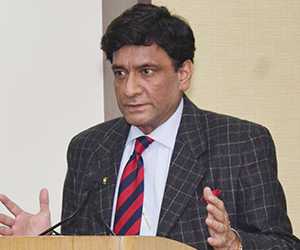


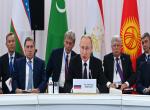

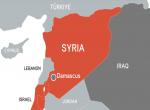
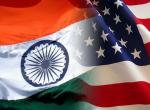

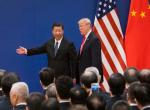
Post new comment